‘Go back to California’: Wave of newcomers fuels backlash in Boise
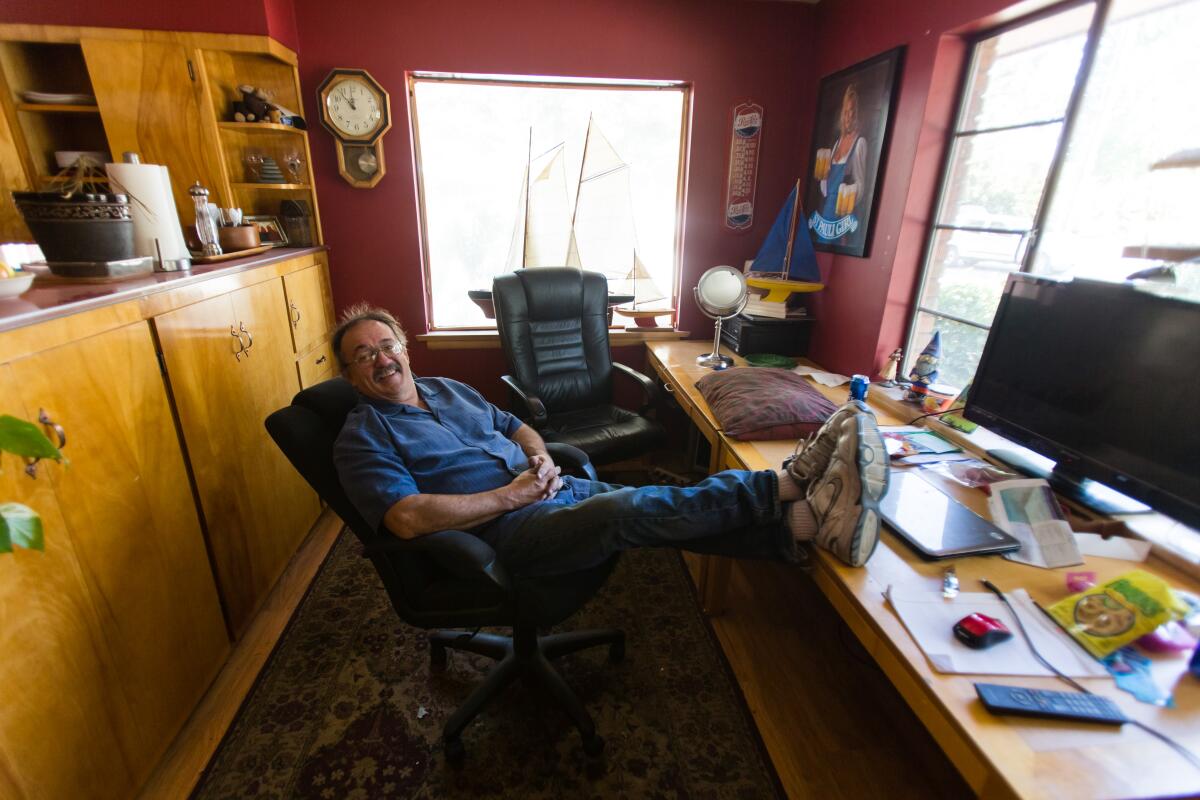
- Share via
BOISE, Idaho — This city sure knows how to roll up the welcome mat — that is, if you happen to move here from California.
Just consider last week’s mayoral election. It was the most competitive race in recent memory, a referendum on growth in the rapidly expanding capital of Idaho. And candidate Wayne Richey ran on a very simple platform: Stop the California invasion.
His basic plan to fulfill that campaign promise? “Trash the place.”
Richey figured that would be the best way to keep deep-pocketed Golden Staters from moving to his leafy hometown. He blames them for pushing home prices and rents up so high that Boiseans can’t afford to live here on the meager wages most Idaho jobs pay.
At a candidate forum in late October, he had a terse answer for the question: “If you were king or queen for the day, what one thing would you do to improve Boise?”
“A $26-billion wall,” he said, laughing, drawing out each word for maximum emphasis. As in build one. Around Idaho.
California bashing is a cyclical sport with a long history in the heart of Idaho’s Treasure Valley. Growth spurts have more than doubled Boise’s population since the 1980 census. Four months before federal counters hit the streets here that year, a Washington Post headline crowed, “To Most Idahoans, A Plague of Locusts Is Californians.”
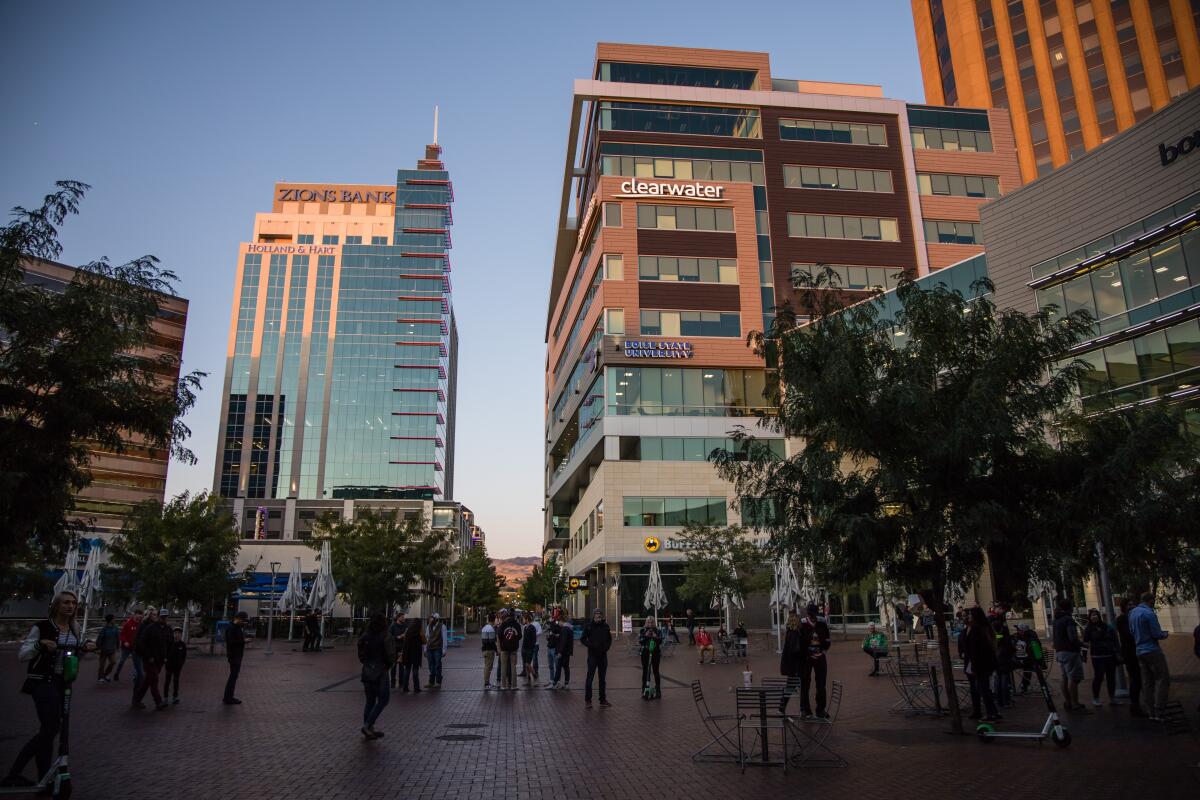
In this current wave, California concerns have made their way into a heated mayor’s race. They have taken up residence on Nextdoor social networks.
And they erupted into a recent tweet storm that swirled around two beloved institutions, Boise State University and football. The electronic uproar caused residents all the way up to Mayor David Bieter to defend their city’s welcoming nature and insist that they like Californians, really they do, despite evidence to the contrary.
The Twitter squall started in late September, when former Boise State University football player Tyler Rausa went out to his car one day. There he found a professionally printed card, white with an elegant charcoal gray and gold border. It had a nicely centered, two-line message in all capital letters.
GO BACK TO CALIFORNIA
WE DON’T WANT YOU HERE
He posted it online with a very short response: “Hmmmm didn’t think I’d ever find this on my car in Boise. #ThankYou.”
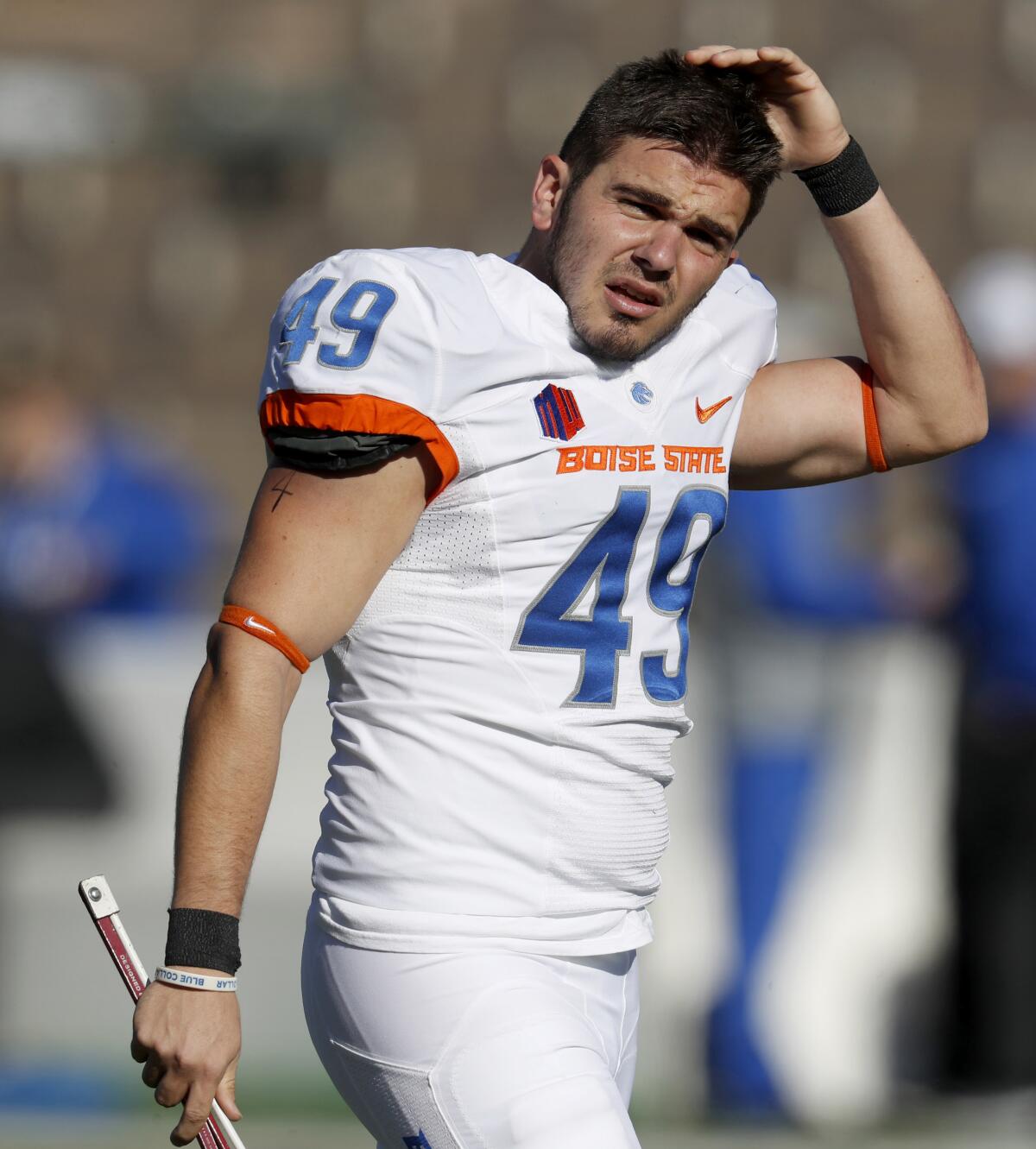
Rausa was a talented kicker for the Broncos in the 2015 and 2016 seasons. He scored 219 points for the team then. He is now an NFL free agent. He still lives in Boise. But he kept his California license plates.
The response to his tweet was swift, voluminous and mostly open-hearted. “I hope they are ashamed of themselves,” wrote @NitroJen. “Idaho: The PNW’s Mississippi,” posted @AbsoluteKit, referring to the Pacific Northwest. “Screw them!” @someone tweeted. “You are more than welcome here!”
Then Bieter chimed in. “@T_Rausa, I hope you take all of the positive comments you received here as the real spirit of Boise and #BoiseKind,” the mayor wrote. “We are glad you are here and part of our great community.”
One bit of advice Rausa got during the online fracas was that he should change those California plates — and fast. That’s been a longtime refrain from friendly Boiseans to their newest neighbors.
The Rev. Bill Roscoe, chief executive of the Boise Rescue Mission Ministries, heard it from his Realtor when he moved to Boise from Redding in 2002. He keeps a sign on his desk that says, “I am not from Idaho but I got here as fast as I could.”
“If you come here and love it, everything’s fine,” Roscoe said. “If you come here and fly that California flag in your driveway and have stickers on your car that say, ‘Santa Cruz,’ there’s going to be some hard feelings.”
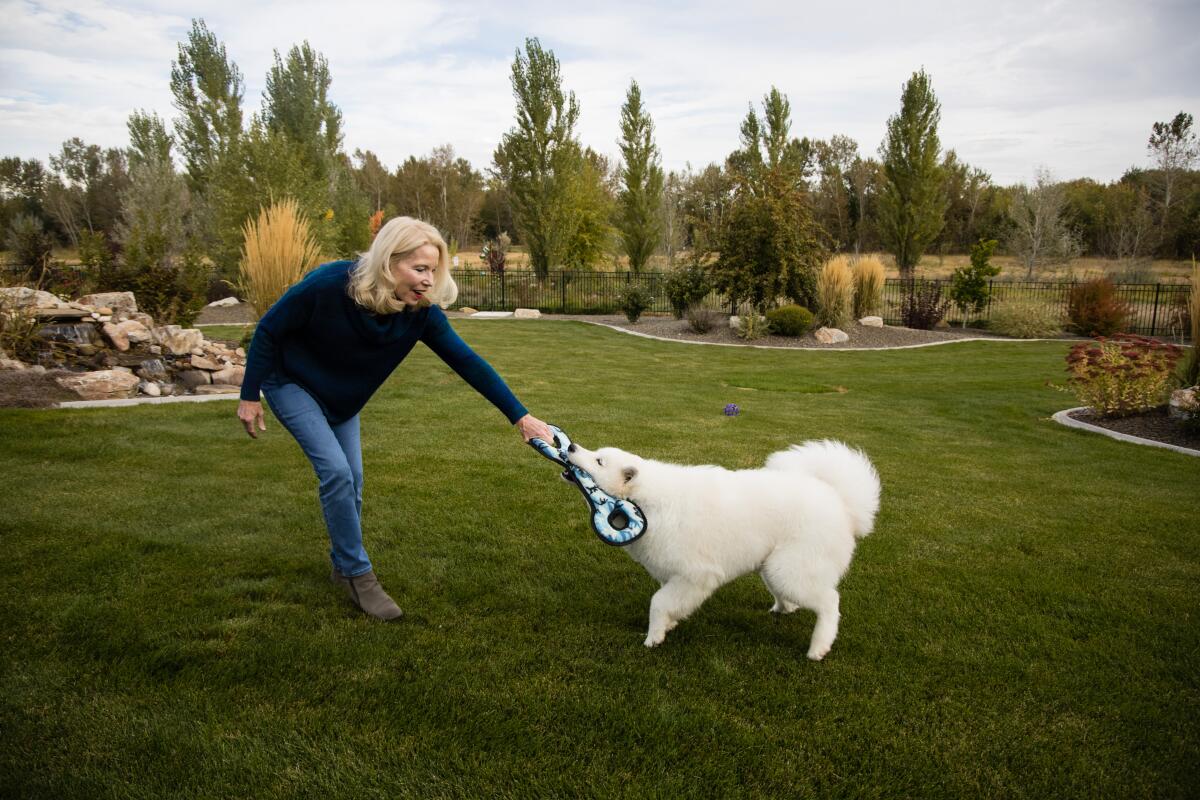
Patricia Flanigan also swapped her California plates for the red-white-and-blue “Famous Potatoes” version when she moved from Dana Point in 2015 to the Boise suburb of Eagle. She had retired as dean of online education and learning resources at Saddleback College.
“I took the position that I would come to Idaho and adapt to the community,” she said. She has a doctorate in education. Earlier in her career, she’d taught English as a Second Language at three Southern California community colleges. She’d also run an ESL program at Lake Tahoe Community College. When she moved, she decided to volunteer with non-English speakers.
She got an appointment with the director of a nearby community college. But the school wasn’t interested in her offer of free help. She was told to try the region’s refugee center. She sent a resume. And never heard back.
At the college interview, “I was dressed professionally, looked like a Californian,” Flanigan said. “I probably irritated [the director] by my confidence. There was no way she was going to have me volunteer.... She wanted to get rid of me.”
That professional cold shoulder was her introduction to Idaho, the 66-year-old said. Since then, she has founded a website called “Smart Strategies for Successful Living.” She has a circle of friends and a house that she loves and owns outright. She has not looked back.
“I’m not here to be a Californian,” she said. “I’m here to be a community member and contribute.”
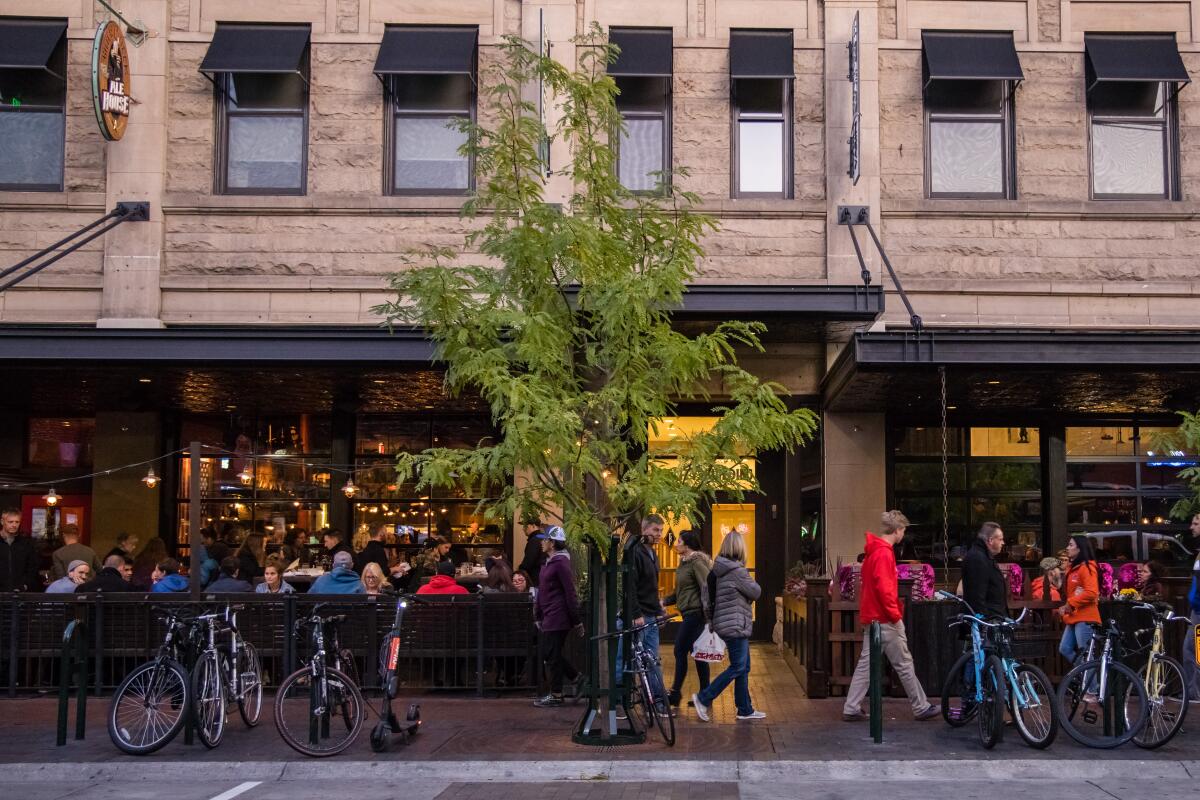
So where did all the hostility come from? Sheer numbers, for certain. A January report from the Idaho Department of Labor said the Gem State was tied with Nevada as the fastest growing in the nation. The agency also reported that more Californians were moving here than transplants from any other state.
Boise Regional Realtors countered with its own report that softened the California blow a little. Of the top 11 counties sending new residents to the Boise area, six were from other parts of Idaho, and only three — Riverside, San Bernardino and Orange — were from California.
Which brings us to the heart of the problem: income inequality.
Anyone moving to Boise from another part of Idaho is still saddled with the same bottom-of-the-barrel minimum wage, an anemic $7.25 an hour. So it’s most likely not the Idahoans who are driving up home prices and filling up rental properties, because they can’t afford to.
The median home price in Ada County, where Boise is located, has risen 19.3% since February 2018, according to the Idaho Statesman. It is now a whopping (for Idaho) $349,994. Conversely, the vacancy rate for apartments in the price range of the county’s lowest-income residents was 0.45% as of Oct. 18, according to HousingIdaho.com.
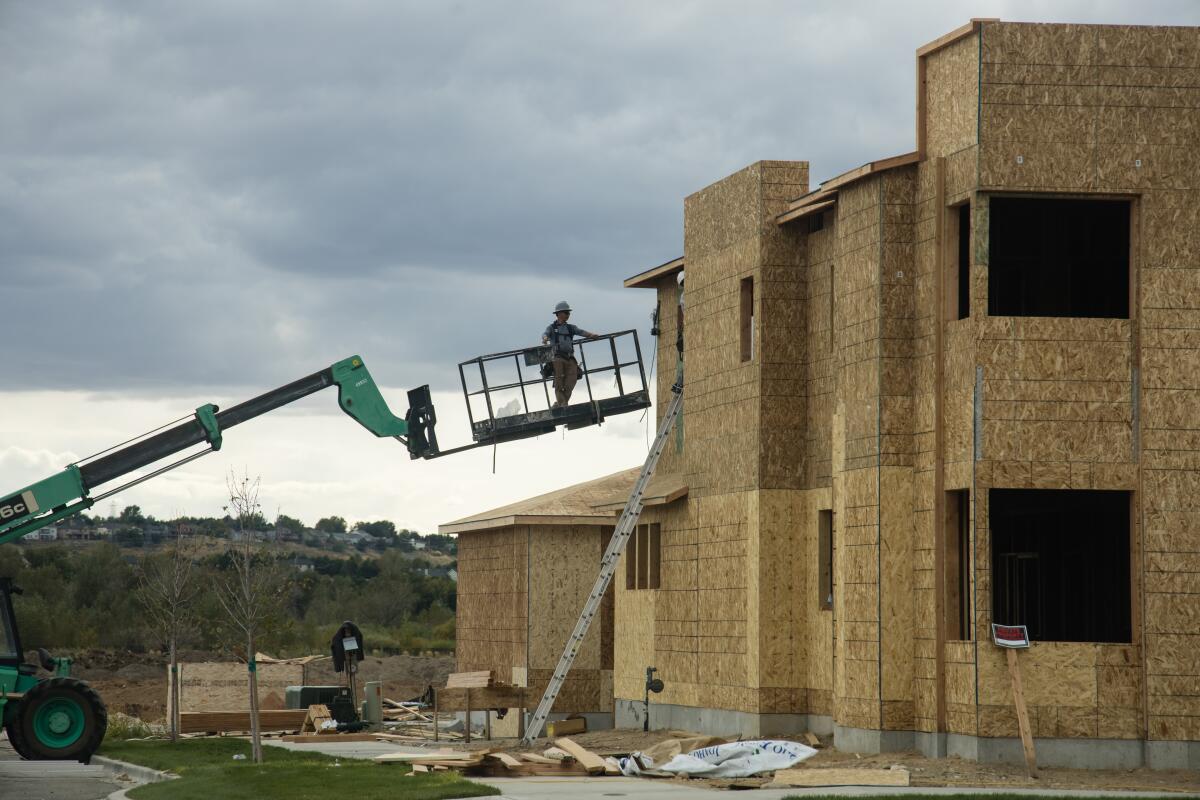
Boise needs 1,000 new housing units each year for the next decade, according to officials in this city of 228,000. That’s just not happening.
Critics of the way the city has handled the explosive growth have become more vocal in recent years. That discontent has fueled one of the more competitive mayor’s races in memory.
Bieter, who is running for his fifth term, faced six competitors, including Richey, the head of the Ada County Highway District Commission, a former mayor who resigned in disgrace and was jailed on corruption charges, and the president of his own City Council.
Bieter declined to comment about growth and the mayor’s race. Critics argue that he has embraced development at any cost. Voters gave him a stiff rebuke Tuesday, forcing him into a Dec. 3 runoff against City Council President Lauren McLean.
The most recent Treasure Valley Survey, conducted by the Idaho Policy Institute at Boise State University, does not bode well for anyone who would run this city in coming years. It was conducted in late 2018 and released in June. More than 70% of respondents said the region was growing too fast, compared with only 50% with that view in 2016.
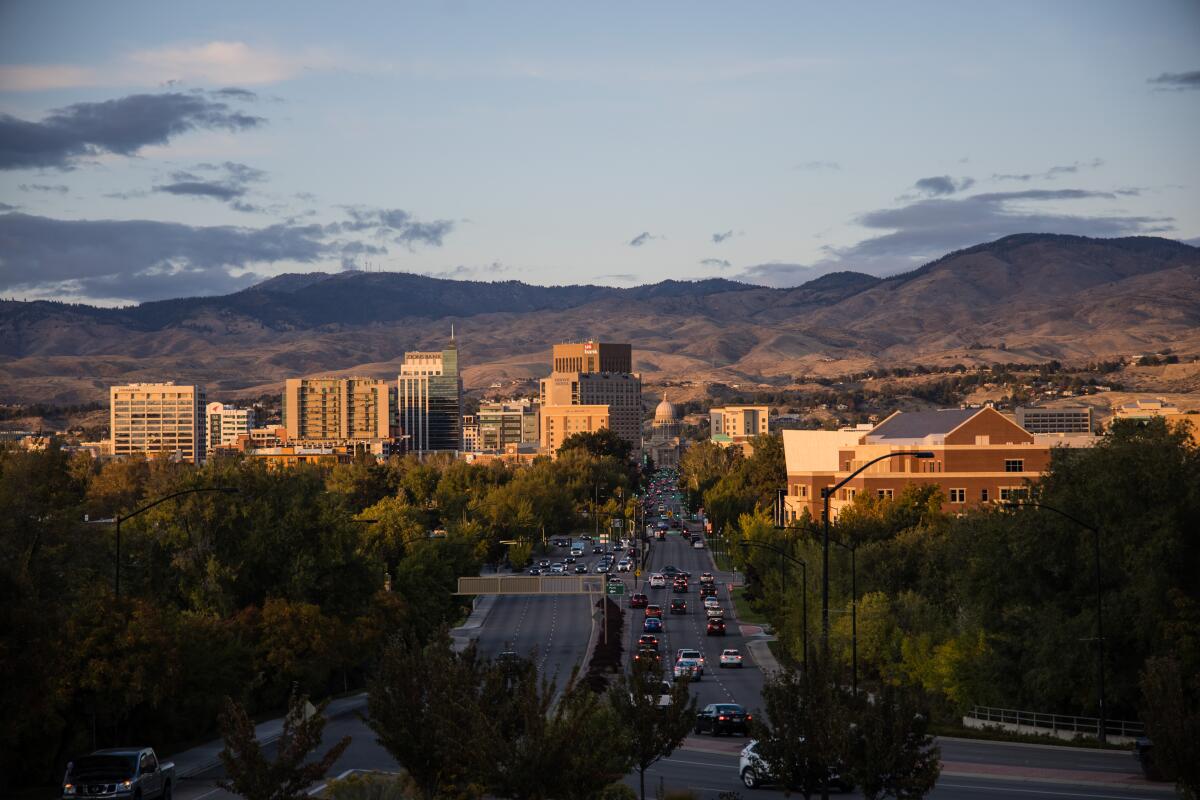
“Over the course of two years,” the survey reported, “residents of the Treasure Valley have gone from being divided about whether the pace of growth was too fast or about right, to adopting the belief that it is too fast by a large margin.”
That sentiment was strong at a town hall meeting that McLean held in September as part of her campaign for mayor. On a Wednesday evening in a strip mall library, McLean talked about the need for affordable housing, good-paying jobs and better transit.
Then she opened up the floor for questions and comments. Almost all touched on growth in some fashion, and at least two people in the audience uttered the C-word, California.
“I know that you can’t stop growth, but what are we going to do about our quality of life here?” asked Yvette Zoe, who moved to Boise in 1972. “My kids, they can’t buy a house because they can’t afford it right now, and they work. My grandkids, their schools are crowded.”
Newcomers are moving here for a better quality of life, but “the very thing they’re leaving in — we know where — Seattle, California, Austin,” they’re bringing to Boise, she said. “What I’d like to see is what can we do for the people that already live here that have been here for a long time.”
Such inequity was what fueled Richey’s quixotic campaign; he came in fifth with 2% of the vote. The 59-year-old auto body technician runs yard sales on weekends and drives for Lyft on Friday and Saturday nights, when “I take drunk people home.”
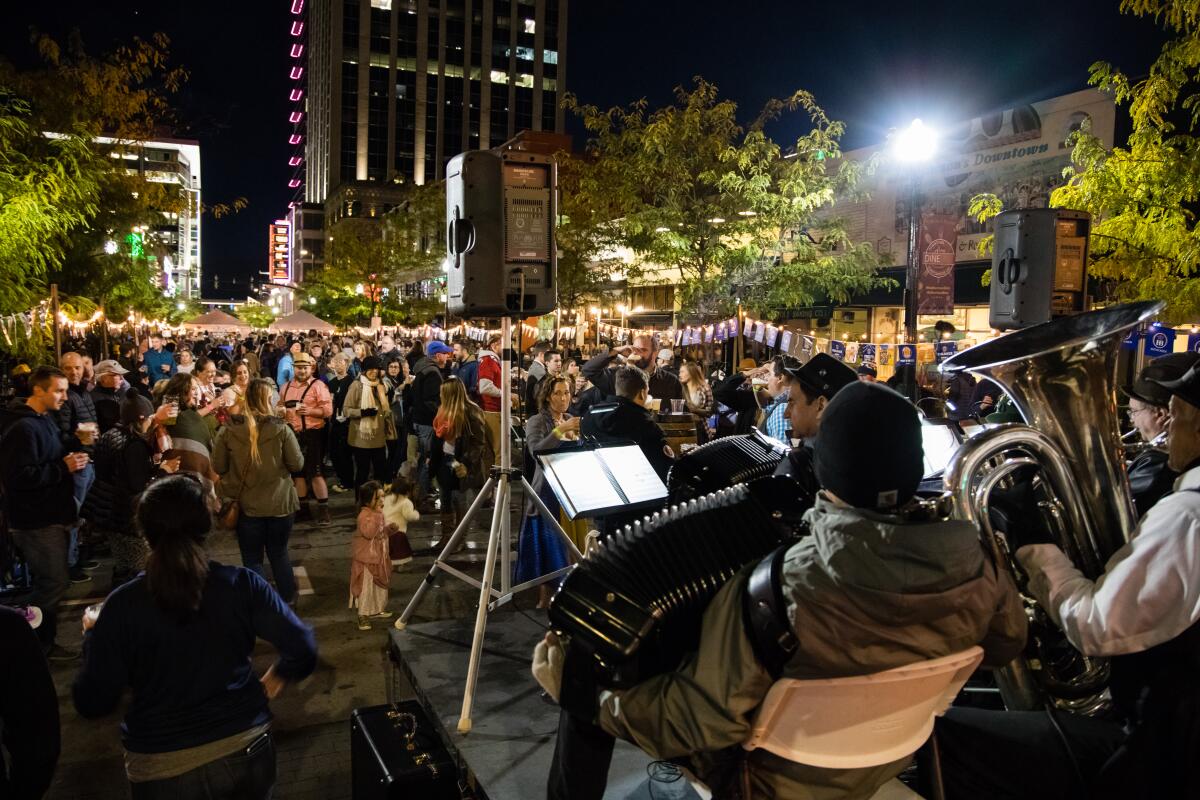
His sister had her own business until the Great Recession, when she lost everything and moved in with him. She just bought a house one city over, the only one she could find for about $230,000, and, he said, it’s a piece of you know what. She works in a call center, rents out a room and works craft shows.
“It’s really, really hard to swallow,” he said, “when somebody sells their house in California for $700,000, comes here, buys any house they want in cash and still has money in the bank.
“Their kids get to go to college,” he continued. “They drive nice cars. And they get to enjoy everything we built over the years. We don’t get to enjoy it, because we’re working 40 hours a week and doing craft shows and doing yard sales.”
One salvo in Richey’s battle against newcomers was his property tax proposal, which he called Proposition Zero One Two Three. His basic tenet: The longer you live here, the less you pay. Sixty-year residents would pay no property taxes, while newcomers would shoulder the burden.
“This gives much needed relief to longtime residents and forces new people to pay their share,” he said on his Facebook page. “Maybe it just might make them think twice about moving here. It would also discourage out-of-state investors.”
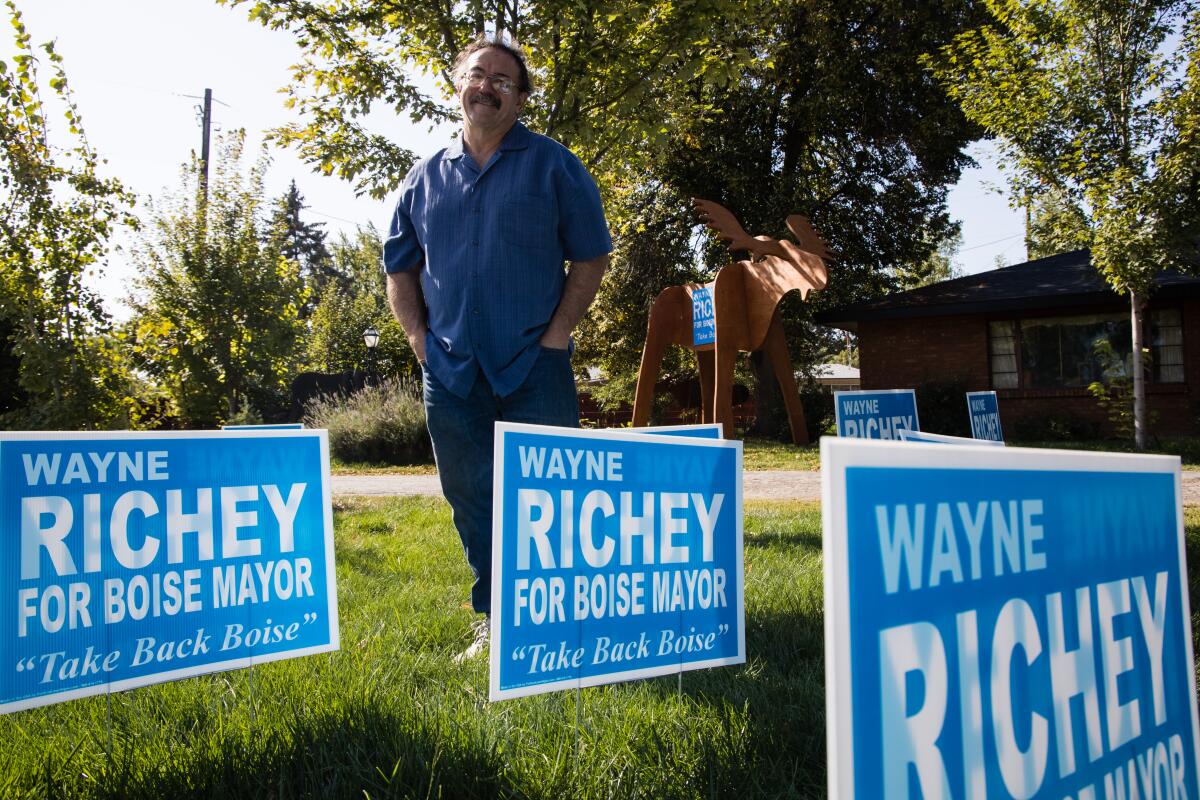
Early one Saturday morning in mid-September, Richey sat in his open garage, waiting for customers to peruse his yard sale. Paintball supplies and a rifle case and burlap sacks and skateboards were spread out on the driveway. A 13-foot-tall plywood moose sporting a “Wayne Richey for Boise Mayor; Take Back Boise” sign stood proudly on the front lawn.
Rick Hulbert wandered by a little before 9 a.m. He’s a retired chiropractor, lives around the corner and was interested in the gently used unicycle. They chatted about the big game that night, the Boise State Broncos versus the Portland State Vikings. About rising rents. About the good old days when you could ride your bike down the street with a shotgun in hand. And about the campaign.
Both men pegged the same scapegoat for many of the region’s ills: Californians.
Richey: “Are you cool with the 20,000 to 30,000 people moving here every year?”
Hulbert: “Well, I don’t know if you could stop ‘em.”
More to Read
Sign up for Essential California
The most important California stories and recommendations in your inbox every morning.
You may occasionally receive promotional content from the Los Angeles Times.











